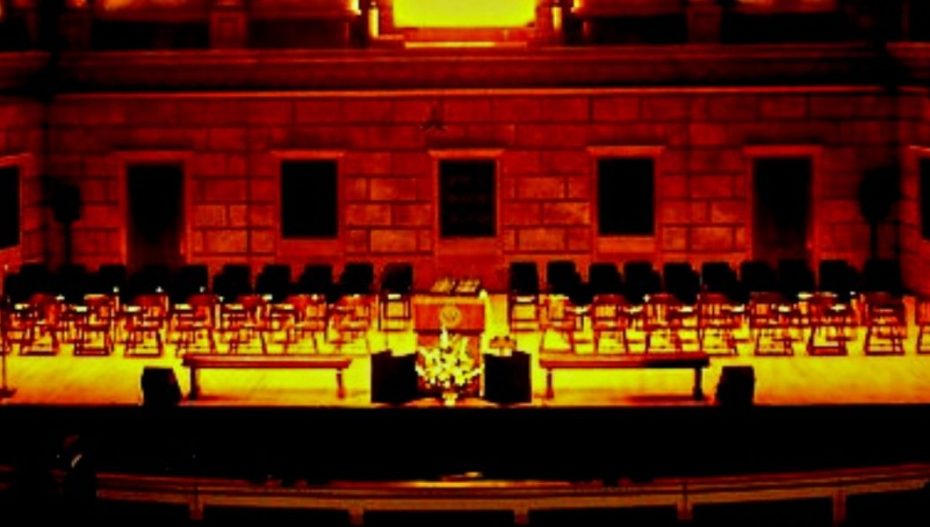Annie Ernaux, the winner of the literature Nobel in 2022, at an event during her India tour, said in no uncertain terms that censorship in literature is a tragedy. Encouraging young writers, Ernaux added that they should have the collective consciousness to fight censorship.
In the current Indian context, censorship is no longer limited to writers’ published work. The mere possibility of certain writers’ attendance at certain events or the prospect of their speech to an audience is enough for event organisers to feel fearful and eventually blacklist them.
Just last week, on February 24, veteran Hindi writer Ashok Vajpeyi said in a social media post that he had been invited to a literary event titled ‘Arth – The Culture Fest’ in Delhi that weekend, where he had to recite his poems in a session called ‘Kavita Sandhya’. But, Vajpeyi said, the organisers forbade him from reading poems that were political in nature or critical of the government. He refused to attend the event, saying, “This kind of censor[ship] is unacceptable.”
‘Arth – The Culture Fest‘ is a Zee Group initiative, which has been organising cultural events under the ‘Arth Live’ banner in Kolkata and Delhi every year since 2019. People associated with literature, art and culture from India and abroad have participated in it.
This year, the festival was held from February 24 to 26 at Delhi’s Sunder Nursery. Also associated with the festival this time were the famous Urdu literature website Rekhta and its associated unit, Hindwi. Rekhta and Hindwi were the organisers of the poetry session initially involving Ashok Vajpeyi.
Rekhta has denied Vajpeyi’s allegations of ‘censorship’ and said that nothing like what Vajpeyi has alleged had been said on their behalf. But this issue is not as obscure as it is being made out to be.
Professor Apoorvanand of Delhi University noted in a recent article, “Even organisers are political beings…It is possible that having been apprehensive, some of them may have indicated to Ashok ji that he should read a poem which is not of the same spirit as his public statements. This gesture may have been an act of polite censorship which Ashok ji gauged correctly.”
Early in February, as the Vidarbha Sahitya Sammelan was being organised in Maharashtra’s Nagpur, journalist and author Ashutosh Bhardwaj had said in a tweet that the sponsors were allegedly “warned” by some local groups against some of the authors invited to the conference. The organisers eventually asked four of them – Aakar Patel, Josy Joseph, Shruti Ganapatey and Shivam Shankar Singh – to withdraw.
This incident has been hardly covered by the media.
Bhardwaj had mentioned another incident of alleged censorship in a separate article.
ADVERTISING
In it, he said that on February 28, at a function at Delhi’s Ambedkar University, he was to hold an interaction with author Alka Saraogi on her latest novel Gandhi Aur Saraladevi Chaudhrani: Barah Adhyay. After the programme was fixed, the university objected to his name.
The event took place on the same day, at Delhi University’s Hindu College.
In the last eight years, Hindi literature may not have taken great strides, but there can be no doubt that Hindi poet Dushyant Kumar’s line, ‘Mat kahon akash mein kohra ghana hain, yeh kisi ki wyektigat alochana hai‘, has touched a chord.
Translated, the words mean, “Don’t say the air is thick with fog, someone could take it as personal criticism.”
The last lines of this poem says, ‘Dosto! Ab manch par suvidha nahin hain, aajkal nepathya mein sambhavna hain. (Friends! Now there is nothing to be got from the stage, it is all in the background.)’
The sentiment suits the season.
A version of this piece first appeared on The Wire Hindi on February 24. Read the original here.
Translated by Soumashree Sarkar.










